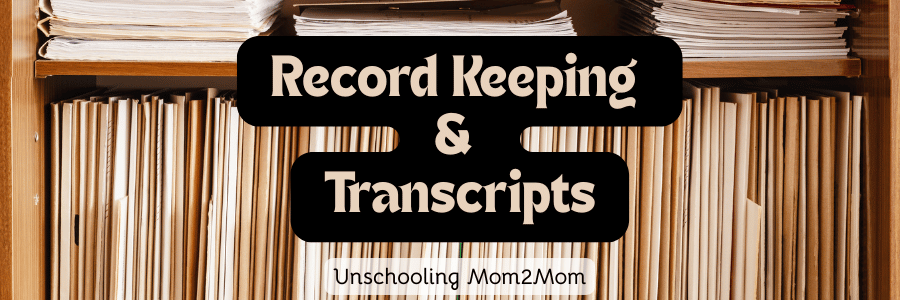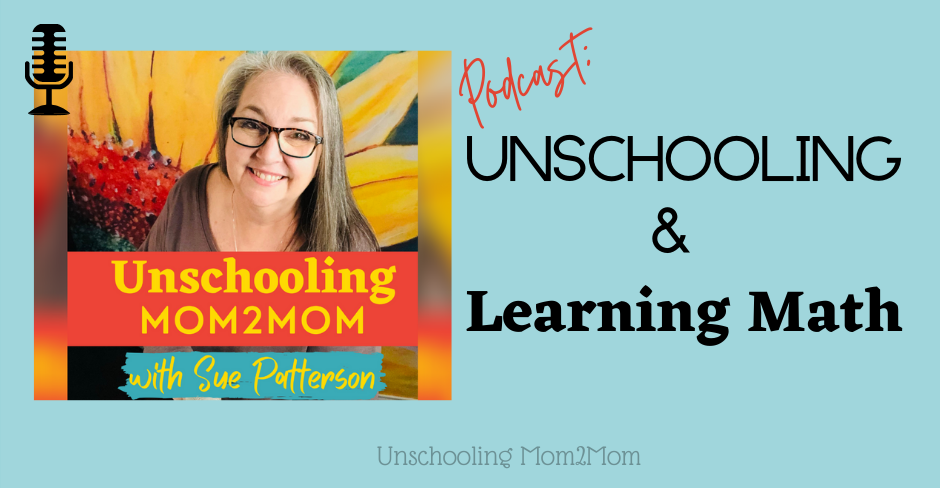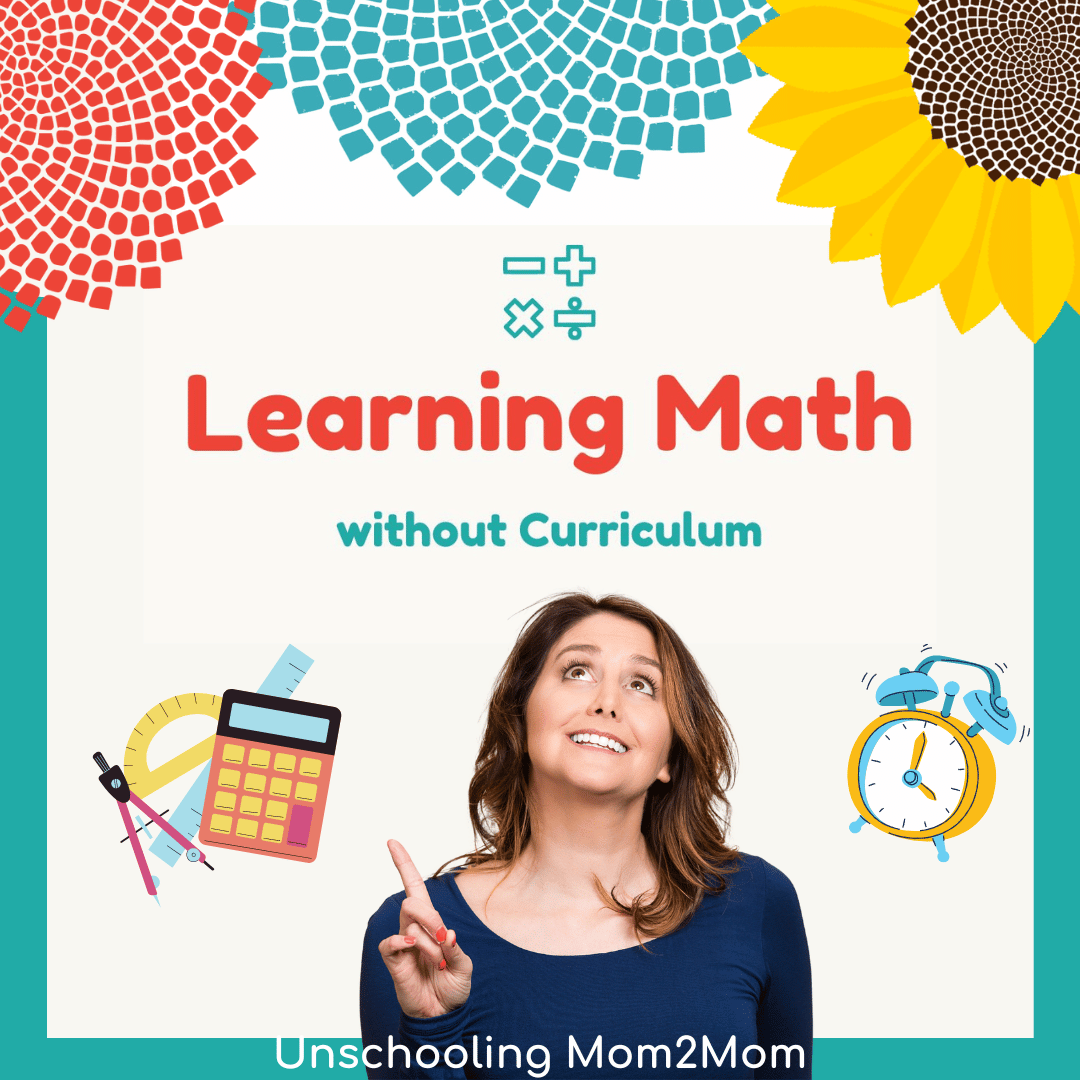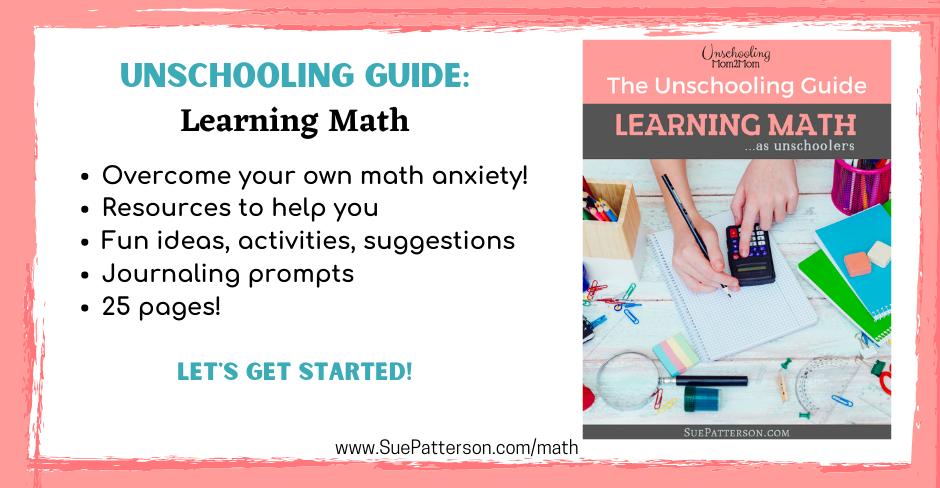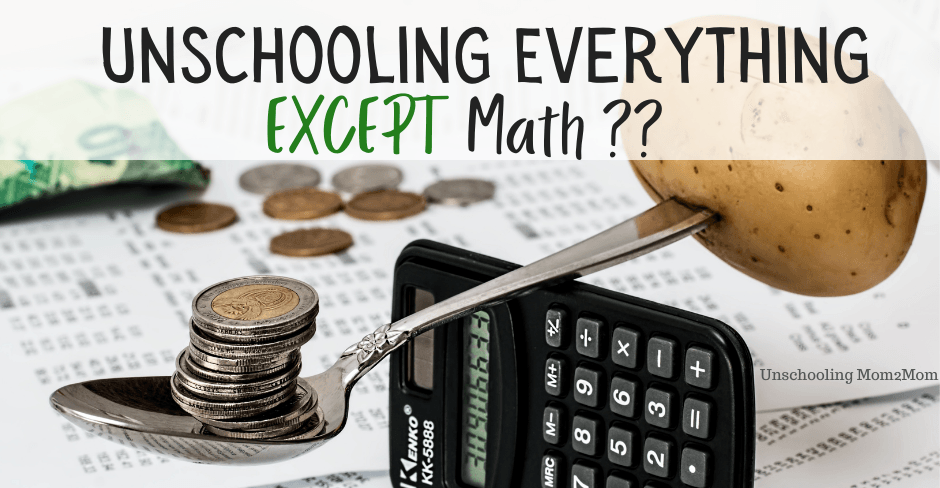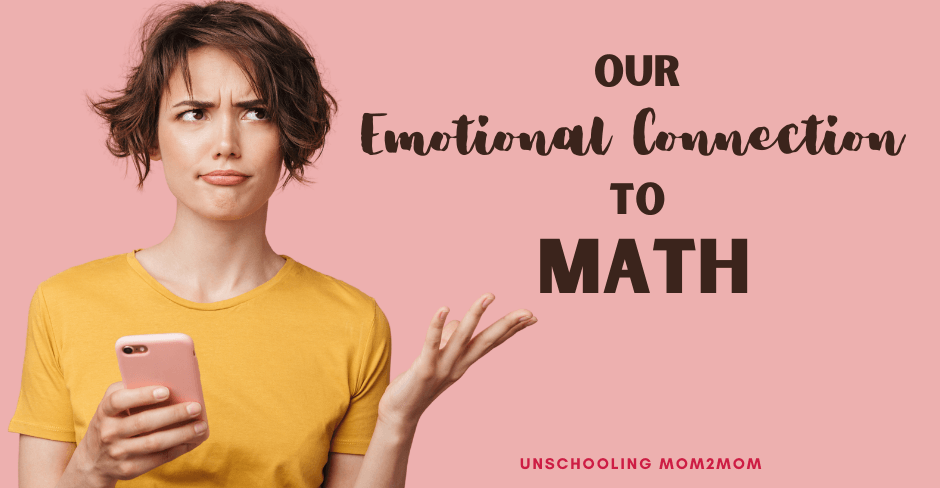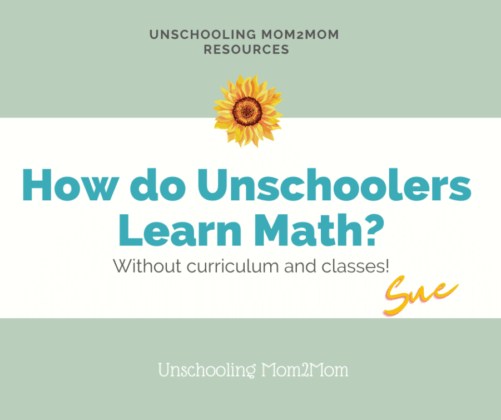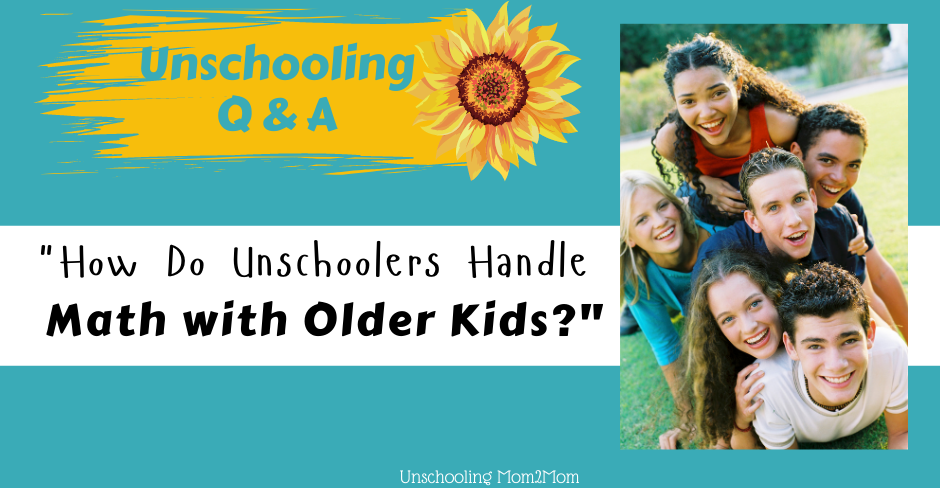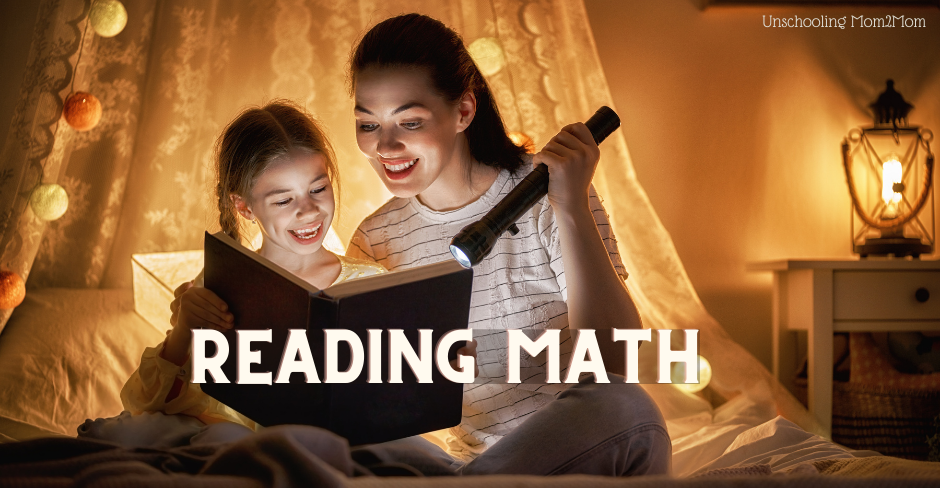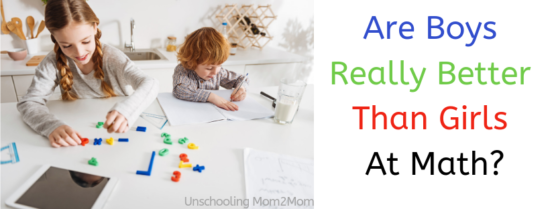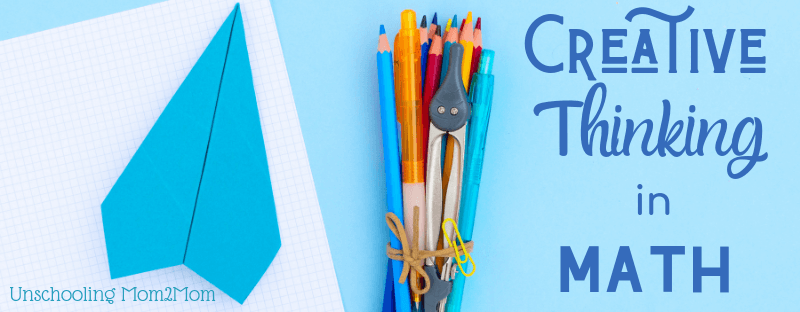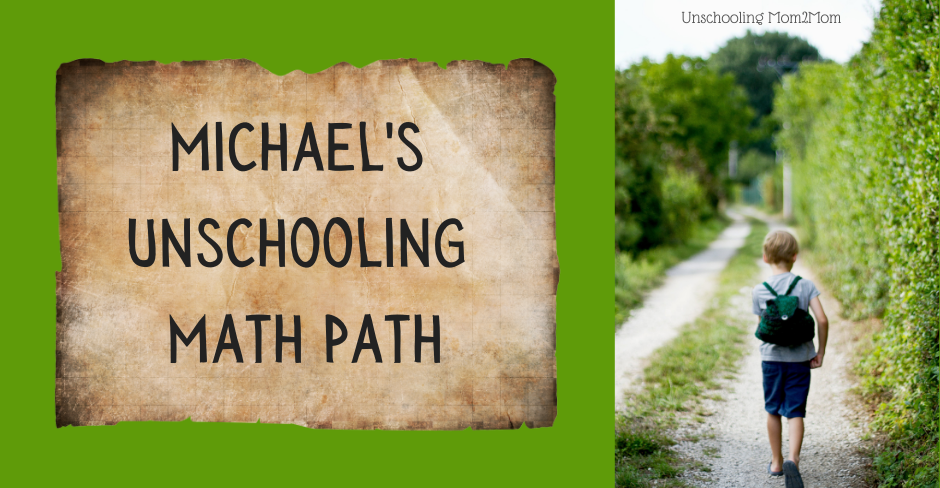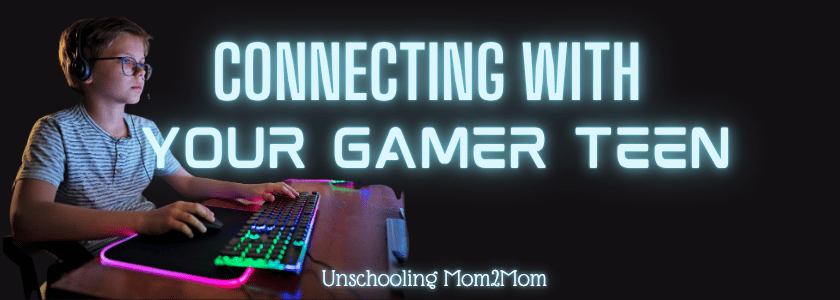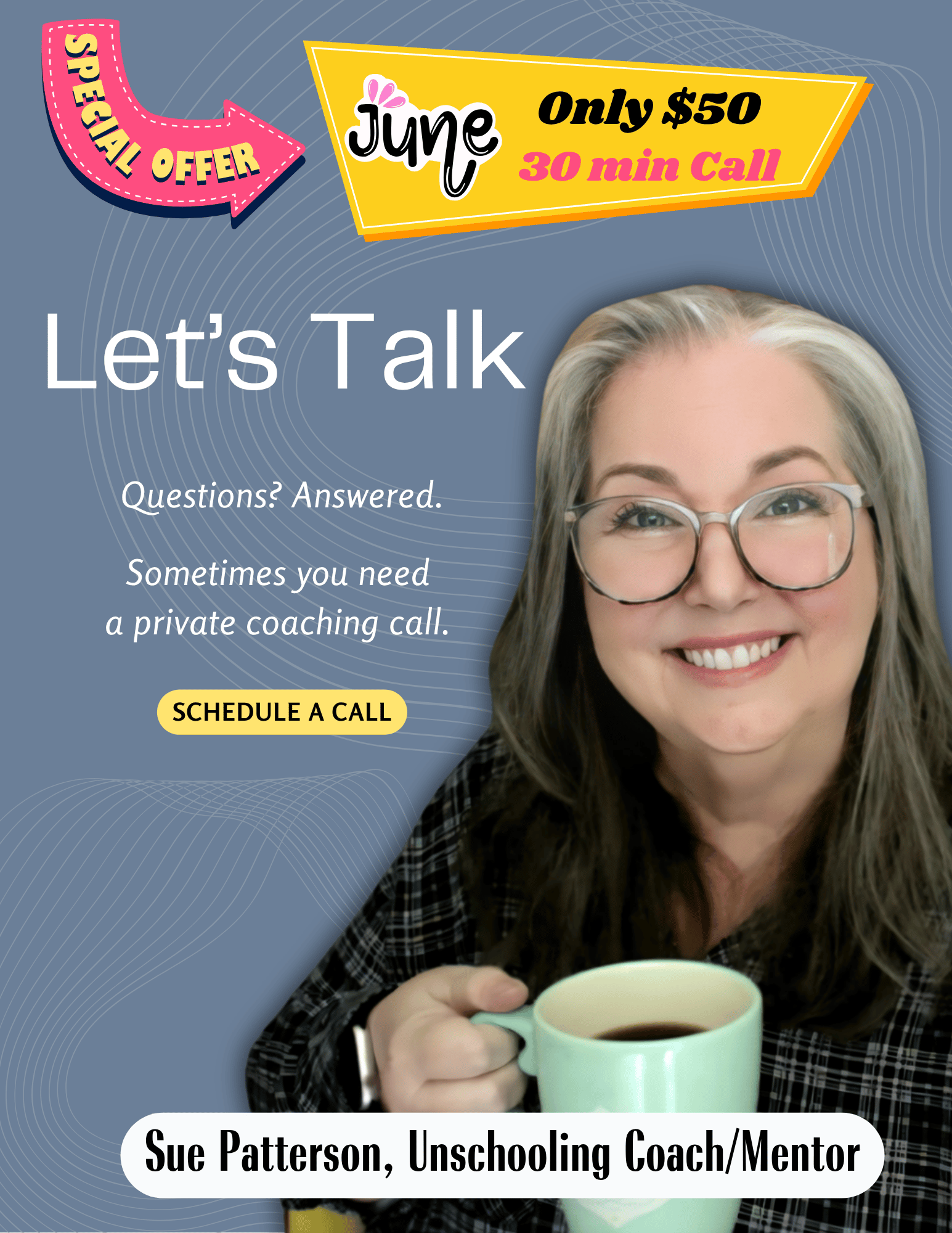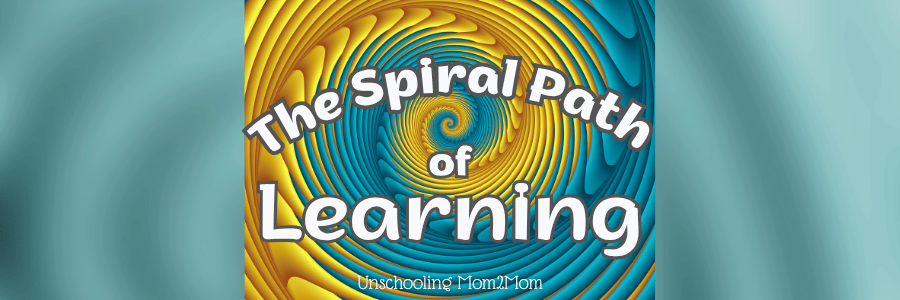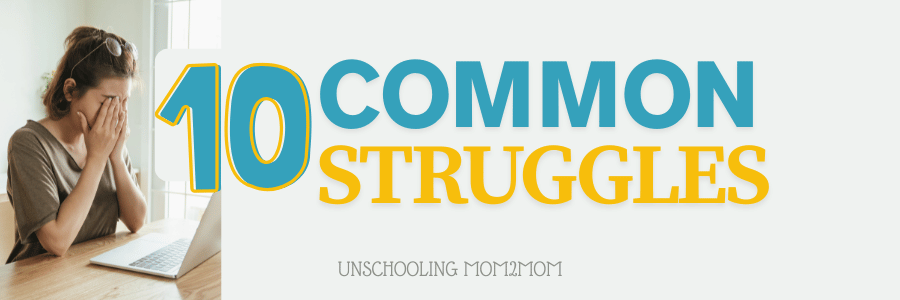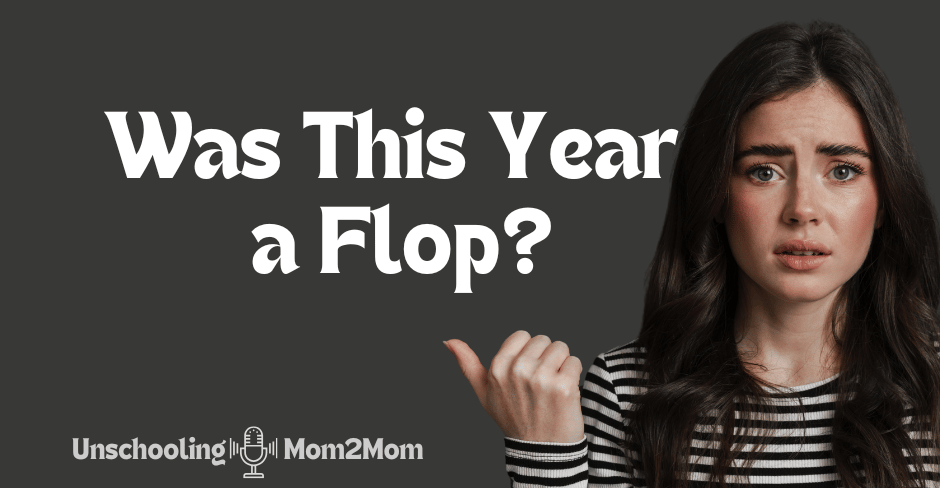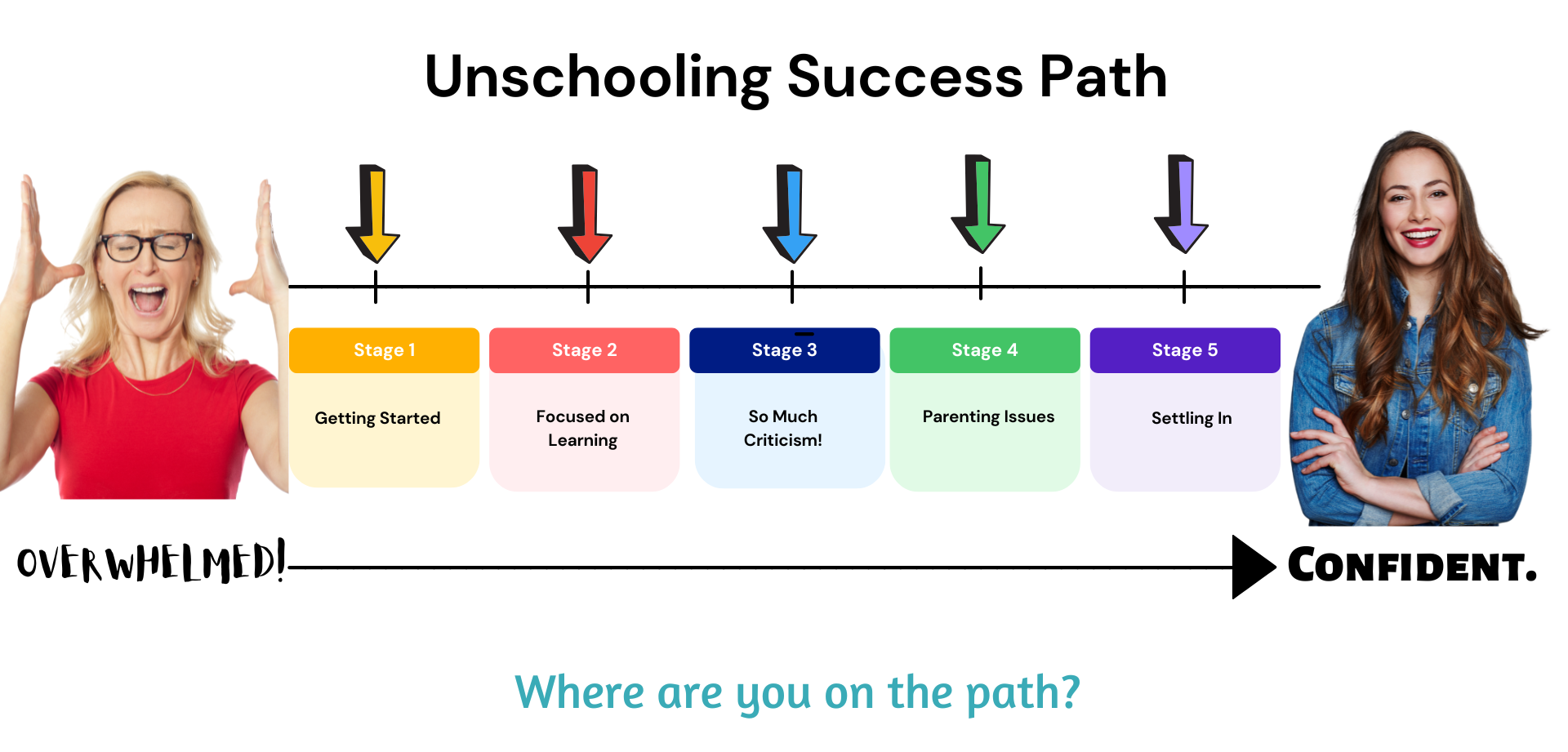Unschooling and Math – why does this scare us so much?
How many times have I heard someone say,
“I like unschooling - but we’re going to use a math curriculum, because you know... it’s MATH!”
As if math is either something sacred or something to be feared!
It’s interesting to me, because most of us have some anxiety about math. And most of us learned the same way - through schools. And then for some reason, we think it’s ok to duplicate the way we were taught, so our kids can... what? Have the same math phobia we have? Or are we hoping it will *work* on them?
So many of us have a personal bias about math. And not in a positive way.
But Math is all around us, every single day. It’s just waiting for us to notice! We’re so busy denying it, though, or saying how we’re “not a mathy person,” that we don’t even see it out there in plain sight.
I’ll probably come back and talk to you a lot about how unschoolers learn math - but lets use this time to start at the beginning.
I’m not kidding when I suggest that too many of us have some national phobia about Math! And the only logical conclusion is that it comes from the way schools teach math. Parents have created a lot of fear around it. They may be on board with allowing Science and History and even Reading flow naturally throughout the days. But letting go of math? No. Doing that would doom their kids to a life of...
… poverty? ...Math-less-ness? Both seem really unlikely.
So when we're already nervous about our own math abilities - and then we start to unschool. Putting unschooling and math together? No wonder we have such a struggle!
New UNSCHOOLING Course!
Learning Math
Without
Curriculum!
Yes! You can really do this.
Stop wasting money on curriculum that doesn't work!
How Does ANYONE Learn Math?
Unschoolers learn math the same way they learn everything else in life – they have a need to know something. So they learn it. Pre-planning because maybe they might need some aspect of it later down the road is, more likely than not, a waste of time. And trying to force topics on children when they have no interest, simply is ineffective and often even counterproductive.
Let’s just admit that your high school algebra classes have been long since forgotten.
And all those other math processes you were told were necessary “just in case you need them?”
Well, did you? Seriously, it’s worth considering.
Different activities need different skill sets. I personally, use ratios and proportions a lot but not a lot else… other than basic math for budgeting and bills. My husband overheard me telling someone that my memorizing the Pythagorean theorem or the Quadratic formula seemed like a waste of time - and he quickly reminded me that he uses the Pythagorean Theorem (a2 + b2 = c2) all the time when he’s building things! Ok! I stand corrected. But that still points to the idea of needing to do something, and then using or learning (or relearning, in many of our cases) the particular math skill. It’s a reverse method from how it goes with the school approach. When these skills are useful in our lives, they get solidified. We could have bypassed the years of irrelevant practice problems!
Math “sinks in” when it’s in context. That’s why we don’t remember much from our old math classes - and why you may even be feeling a little anxiety as I mention the Pythagorean theorem or ratios/proportions. But maybe you haven’t needed them.
Arbitrary problems with no real connection to our lives aren’t going to cut it. The brain does not store what it considers unimportant pieces of information... unless it’s actually used. So when unschooled kids (or any kids really) are using math while playing video games, it’s useful to them. And so their brains DO remember the concepts more.
It’s really astounding how much math is required while playing video games.
Watch your kids play
- whether it’s videogames or legos, building bike ramps or making clover chains (remember those?) You’ll see them figuring out how to find the solution. It’s a practical application of all the “word problems” many of us hated in school. They’re actually learning how to think mathematically – instead of just memorizing something they have no clue when to apply.
While it’s harder to measure their progress, it’s such a deeper understanding!
Why would you want to pull them away from their real life math activity, so they could crank out a couple of math worksheets?
So remember that “learning math” isn’t really the goal.
Math is a tool to solve the problems we want solved in our lives.
In the same way that reading is a tool to gain more information or enjoyment - not just to be a good reader or a good math person, in and of itself. Schools put the cart before the horse in this regard.
Unschoolers don’t have to continue to do that!

What to do instead of Math workbooks...
If you’re one of those people still hanging onto math workbooks/curriculum – but otherwise really liking the unschooling concept, I invite you to do a few things…
- Play more games - cards, dice, pennies.
- Get creative with math - Do a chalk hopscotch line all the way down the sidewalk! Clap out the rhythm of a poem. Look over at the Unschooling Mom2Mom Pinterest account for the Math Ideas board.
- Plan for Pi Day - March 14th. I have an entire pinterest board full of ideas for Pi Day !
- Do a Math Scavenger Hunt , looking for all the hidden math in your home or community. I have several suggestions for how to do this in the Unschooling Guide for Learning Math as Unschoolers
- Seek out books that talk about math - don’t allow your bias to cause you to shy away from them. It’s natural, if you have the ideas that you don’t like math or you’re not good at it. But you don’t always have to act or speak on those… you can do the opposite! Here are some ideas: Reading Math
- Read about Your Emotional Connection to Math
So that’s our first foray into unschooling and math here at the podcast. I have a lot more ideas to share, so keep coming back! Now that this is over at an official podcast platform, feel free to leave a comment, subscribe, share with your friends - you know, all the things to help us spread the word that Unschooling works!
Have a great week with your family - don’t be afraid of math - grab the Unschooling Guide about Math if you’re still nervous about how it can work or you’re looking for some more practical ideas to try.
Unschooling and Math!
Do you want more specifics about how to stop stressing about math and find it in all kinds of activities?
This Unschooling Guide can help you do exactly that!
More to Read About Unschooling Math...
